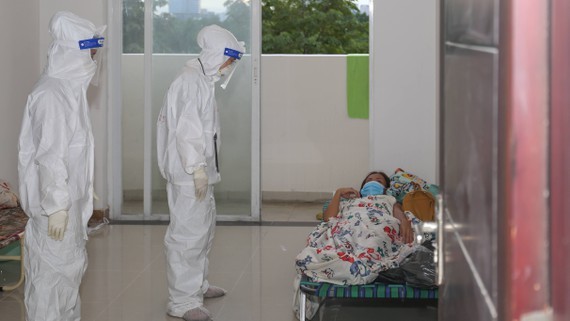
Specifically, contacts F1 in very high-risk areas including hostels, poor residential areas, dormitories that fail to meet the Ministry of Health’s criteria for home isolation must be brought to concentrated isolation as well as undergo RT-PCR test on the seventh day of contracting the disease instead of the fourteenth day as before.
They are only under home isolation if their test results are negative.
Healthcare workers in districts where infected people are residing are assigned to monitor the patients’ health condition at home.
Regarding isolation and treatment for infected patients without symptoms or with their negative RT-or those with low viral load, the Department said they can be quarantined at home if their families must make sure they well apply infection prevention.
Patients must undergo RT-PCR testing at home on the fourteenth and twenty-first days.
The city has piloted home isolation of infected medical staff who are isolated at home provided that they can self-monitor their health condition and report to the local medical facilities and perform tests as prescribed.
These infected cases must be monitored by local health authorities and the workplace. They must observe the coronavirus prevention and control measures. Local health facilities must set up health monitoring teams for the isolation of infected people at home daily.
Additionally, a hotline must be set up to receive reports of people with symptoms of coronavirus disease so that they take patients to the hospital for treatment.
Contacts F1 who are monitored at home must undergo RT-PCR test as prescribed as a centralized isolation case. It is recommended that relevant units closely follow the guidance.
























